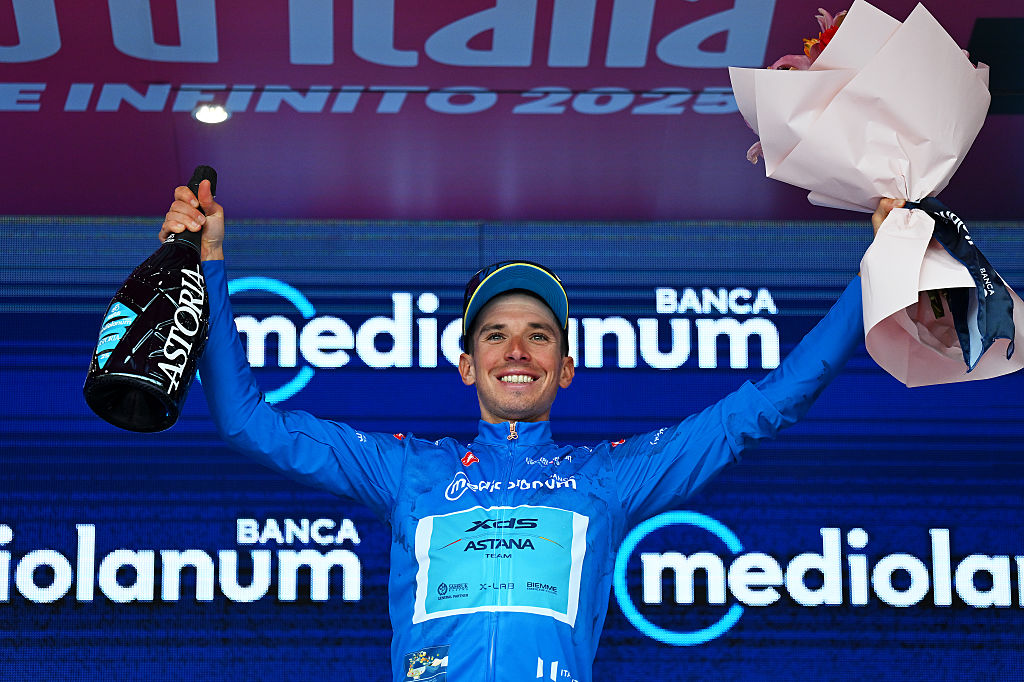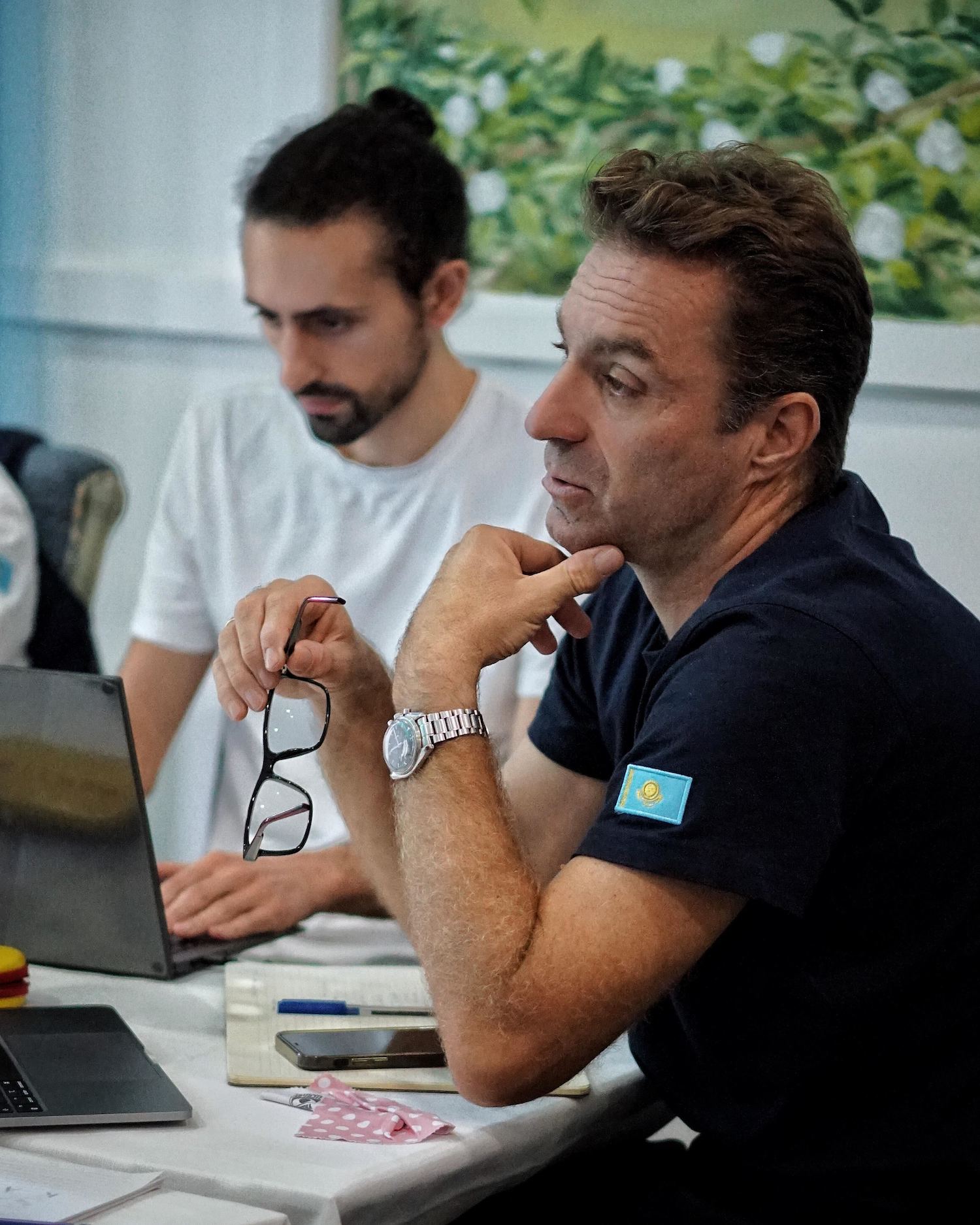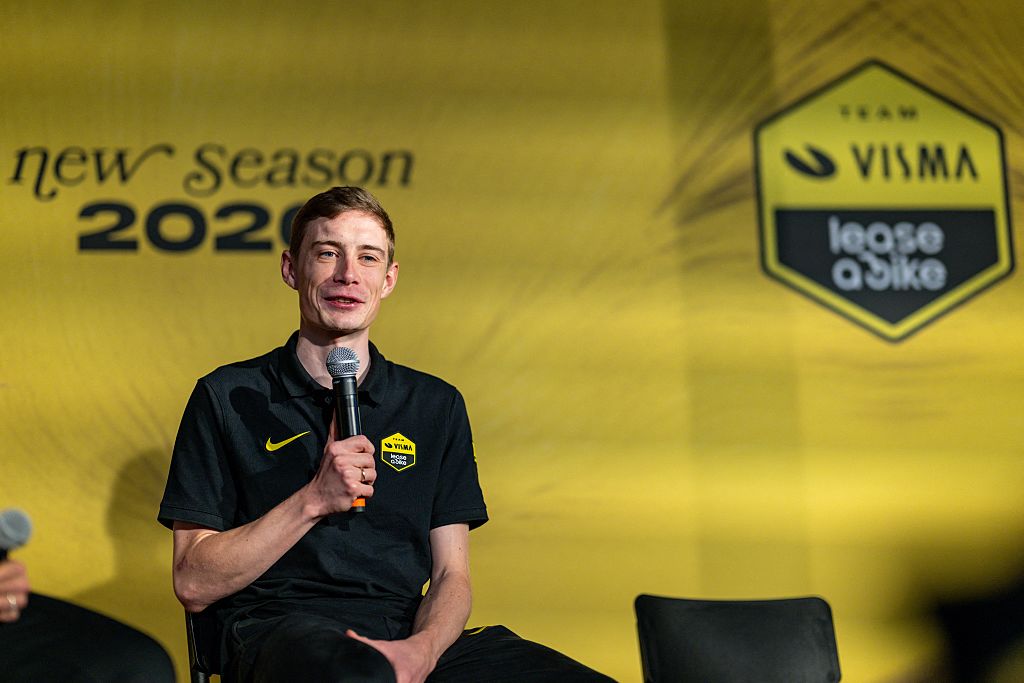Crunching the numbers and controlling the variables – How XDS Astana climbed from dead last in WorldTour to top three in under a year
Kazakh team went all in with a new data scientist and it's paying off

The latest race content, interviews, features, reviews and expert buying guides, direct to your inbox!
You are now subscribed
Your newsletter sign-up was successful
Professional cycling has made huge strides in becoming a more modern sport over the past 15 years and the XDS Astana team are a prime example of how the simple step of embracing technology can turn a last-placed team into a major player, even without a superstar rider like Tadej Pogačar, Remco Evenepoel or Mathieu van der Poel.
For the last few years, XDS Astana have been one of the teams at risk of relegation from the WorldTour, but they have followed the top teams in incorporating data science into their programmes, hiring data scientist Morgan Saussine to help turn the team's fortunes around.
It's not a new concept – UAE Team Emirates-XRG teamed up with the big data analytics company Presight and now have a bot called 'Ana' to help answer questions on how to get the best out of their riders. Visma-Lease a Bike use AI to help with nutrition and Red Bull-Bora-Hansgrohe are talking about incorporating all manner of data into one unified system, according to a recent report in Velo.
Even the lower-ranked teams are getting on board – Tudor Pro Cycling have posted a job opening for a full-time Data Scientist – so incorporating data into pro cycling is clearly important, and that's because it works. Case in point, XDS Astana.
Astana had been on the decline ever since 2021, when they lost Premier Tech as a sponsor. They finished last among the WorldTour teams in 2022, 2023 and 2024 and are behind ProTeams Israel-Premier Tech and Lotto, meaning they have to beat two WorldTour teams to make the top 18 in the three-year UCI Team Rankings – a requirement to remain in the sport's top tier
At the start of the 2025 season, the team needed to score about 5,000 points more than teams like Cofidis and Arkéa-B&B Hotels over the season to make the top 18. So Saussine used the available data and helped advised the team on selecting races where their riders have the best chance at scoring points.
Now, just 18 weeks into the season, XDS Astana are third behind UAE Team Emirates XRG and Lidl-Trek for 2025 so far, and have succeeded in surpassing Arkéa-B&B Hotels and Picnic-PostNL and are closing in on Cofidis in the three-year rankings.
The latest race content, interviews, features, reviews and expert buying guides, direct to your inbox!
The riders, coaches, sport directors, mechanics and management all contributed to XDS Astana's success, but Saussine helped them not just with their calendar and rosters, also with training and nutrition by creating tools that can help the team make informed decisions.

Saussine emphasises that his approach is just helping human beings to make the best decisions, and is not turning the team into robots.
"The day when you will have an automatic AI voice that's gonna speak in your team car – I don't want to see it either. I like the hybrid way of having someone to work with, because we are talking about people who have years of experience in cycling, so I learned a lot from them," Saussine told Cyclingnews.
"In a WorldTour team at the highest level, when you need to perform, you have different use cases on a weekly or sometimes daily basis. So then you need really someone to focus on the data. It's quite new in cycling that you need to do data engineering – gathering the data, do the extraction, transforming, loading and then cleaning the data. Then you have the data analysis part, where you can build some dashboard charts to make the data more readable for the end user. Then you have also the data science part, where you create models to make predictions.
"But it's not PlayStation ... [you have to make] it readable for the guys who have the real expertise – you can be the best coder on Earth, but if you don't understand cycling, it is more difficult. I'm a recreational cyclist – not at a high level – but I was building tools for myself, having a coach, doing testing... So I can speak to a nutritionist, I can speak to a coach, I can speak to a DS – I have less expertise than them, but I can speak their language."
The variables you can control
The upward trajectory for XDS Astana also came thanks to an infusion of cash from the Chinese bike maker XDS. The team was able to hire a slew of new riders like Wout Poels, Sergio Higuita, and Diego Ulissi but the team still lack a major star like Pogačar, who has scored a third of UAE Team Emirates' points this year, or Alpecin-Deceuninck with Van der Poel earning nearly half of the team's total.
XDS Astana have instead relied on their depth and data-informed decisions. Their top rider in the team rankings, Simone Velasco, has earned just over 10% of their points. They've also balanced their targets almost evenly between WorldTour races where scoring points is more difficult but more lucrative, Pro Series and .1-ranked races where there are fewer points but lighter fields.
Sports director Dario Cataldo saw the results of their work first-hand at the Presidential Tour of Turkey. The team won the overall with Wout Poels, who took three stages, and had Harold López finish second overall.
"[Saussine] analyses the cycling calendar [and predicts] where we have the highest probability to score points with the riders we have, taking into consideration their characteristics. In a certain period of the year, he studies which race we should take part in and with which type of rider. It's bringing excellent results," Cataldo recently told Cyclingnews correspondent Jean-François Quénet.
"It's a team effort. It's not the data scientist who decides and the sport directors who follow. When there's a doubt, we provide him with information, we ask him to analyse the situation, and he comes back with numbers that tell us what suits us. It's very useful. In relation to his feedback, we decide which riders we send to which race according to the probability of scoring points."
Since the start of the 2025 season, XDS Astana has not only wiped out their deficit to 18th place in the three-year team rankings, they're on a path to climb even higher up the rankings if they continue on as they have in the spring. Could data analytics be the next 'marginal gain' for cycling?
Vasilis Anastopoulos, Astana's Head of Performance, thinks so. "Morgan played and still plays a significant role in our decision making, about the roster of the team, the selection of the races. He defines the strengths and limiters of our guys," he told Cyclingnews.
"He's helping us by choosing the best roster for each race, and also he's helping us analyse the data after the races and indicate if a rider needs a rest, if he's in an overload situation, if the training we have applied to him is effective or not, and that was a big, big help for us – a huge asset to the team over last year."
Of course, data analysis can't solve everything. Christian Scaroni was the team's top scorer until Strade Bianche, when he crashed heavily, showing that bad luck can be around any corner.
"Even though you could select the riders that have the most chance to score with ... if you don't have the legs on the day, if you crash on the wet road, on the downhill – there are so many variables that you do not control. But that's what we love about cycling too. We're trying to decrease the amount of unknown variables, but at the end, you still have a lot," Anastopoulos said.
According to Anastopoulos, the next step for using data is "to create some models predicting more accurately things like athletic performance and optimising the training program that we apply to the riders with the goal of the riders reaching their top shape at the moments that we want.
"There is still some work in progress, but the work that Morgan is doing and all the data that he's analysing is really, really useful for decision making."

Laura Weislo has been with Cyclingnews since 2006 after making a switch from a career in science. As Managing Editor, she coordinates coverage for North American events and global news. As former elite-level road racer who dabbled in cyclo-cross and track, Laura has a passion for all three disciplines. When not working she likes to go camping and explore lesser traveled roads, paths and gravel tracks. Laura specialises in covering doping, anti-doping, UCI governance and performing data analysis.
You must confirm your public display name before commenting
Please logout and then login again, you will then be prompted to enter your display name.
